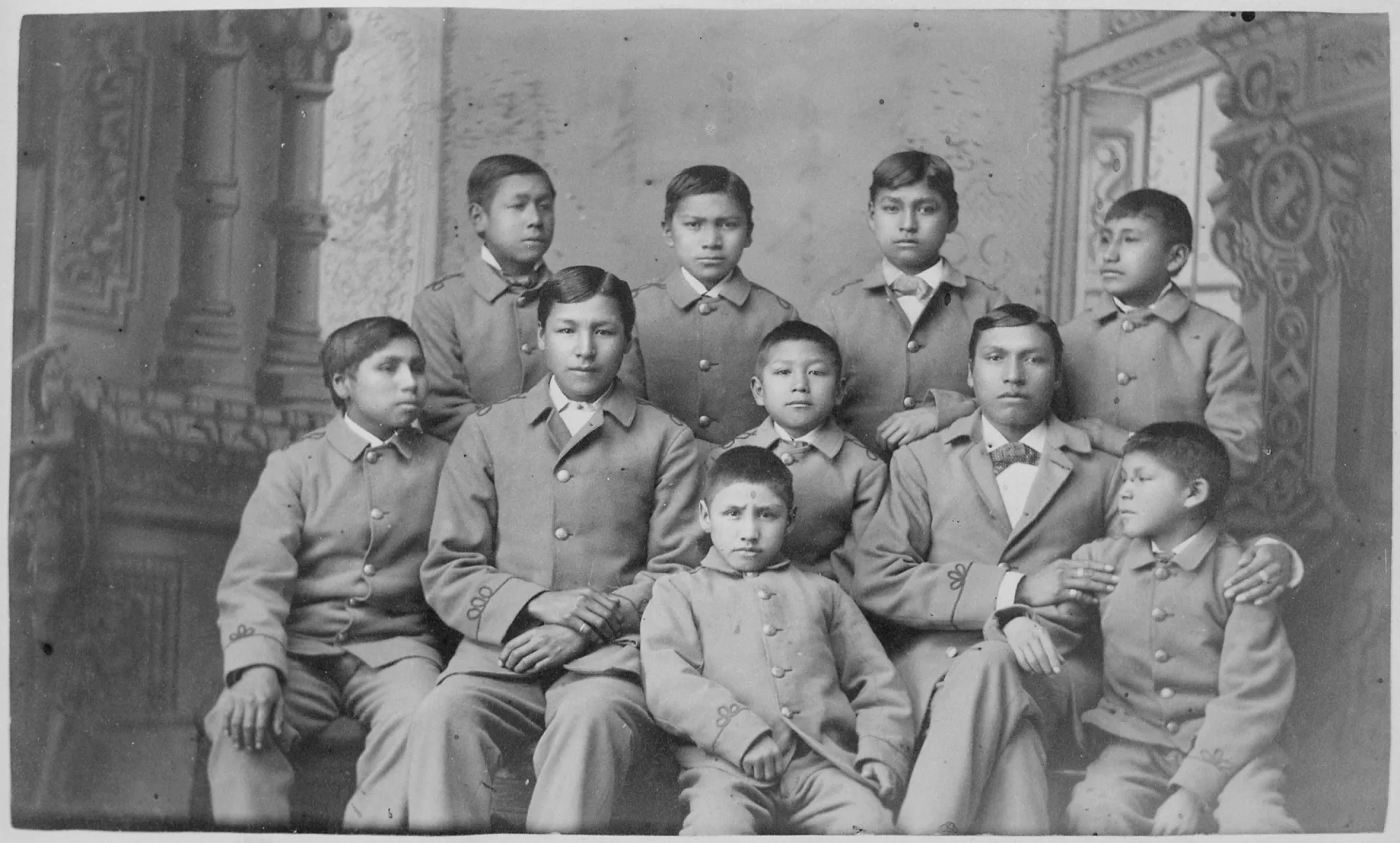IMPORTANT STEP!
Northern Arapaho tribe asks Wyoming for a state ICWA law as U.S. Supreme Court decision looms

Northern Arapaho business council member Lee Spoonhunter has one request of the Wyoming legislature.
“Let's get started on working on legislation to protect the children of the state of Wyoming,” Spoonhunter asked
An upcoming U.S. Supreme Court case looking at the Indian Child Welfare Act (ICWA), first passed in 1978. A law that keeps tribes of Indigenous children in the loop of family court proceedings to maintain families and communities. Spoonhunter is asking the state-tribal relations committee on behalf of the Northern Arapaho tribe to enact a state law protecting the tenets of ICWA.
The U.S. Supreme Court is expected to rule on Brackeen v. Haaland before summer of next year, and some fear that ICWA will be repealed.
“We're going to lose our children to the system. We're not going to find them until they've been adopted out,” said Spoonhunter. “And that's just the reality of what's going to happen if this law is struck down.”
An ICWA case requires two things: One, a child who is enrolled or could be enrolled in a tribe and one of their parents needs to be enrolled and two: the child’s case needs to be going through some kind of child custody proceedings. This includes foster care, adoption, or a termination of parental rights.
Clare Johnson, the Northern Arapaho tribe attorney, said she is currently working on 62 ICWA cases, about half within the state of Wyoming and the other half Northern Arapaho children in other states. They are all unique in what the individual child requires to be compliant with ICWA. But all have one thing in common.
“The Northern Arapaho tribe strongly believes in bringing these cases back to tribal court to attempt to reunify the child with their family. And if that's not possible to place them with other members of their family or their tribe,” said Johnson.
Being adopted outside of the community might lead a child to feel disconnected from their culture. And the U.S. has a long history of actively taking away Indigenous children from their families in boarding schools. This was a policy that removed Indigenous children from their homes in order to break cultural traditions.
Department of Interior Deb Haaland has enacted its Indian Boarding School Initiative, aimed at detailing the forced assimilation of Indigenous children.
ICWA has allowed children to stay in their communities.
“The tribe likes to have the children within the tribal system so we can look at alternative solutions,” said Johnson. “So, that maybe we place with grandma, and parents have a chance to work the system and get into a place where they can one day have their children back.”
The proposed options could include drafting a trigger protection legislation. What that means is if the federal government does strike down ICWA, Wyoming could say ‘no, we will still follow the tenets of ICWA’. Or use the federal law as a template to draft a state law.
But Senator Affie Ellis said it might be prudent to wait and see what the federal government does before drafting legislation. Since tribes are political entities, they have a special status under the law that describes them as sovereign, unlike other racial categories. This gives them political power and protections under the tribes that they are enrolled in.
Ellis said if the law was repealed, this unique political distinction afforded to tribes would be called into question.
“So, that's what's at stake here, is if the Supreme Court somehow finds that that political classification no longer applies, and it's just race-based, then we can't just mimic the federal law, because then it really just takes it all away,” she said.
So, Ellis said waiting might be the better move.
Kate Fort, director of the Indian Law Clinic at Michigan State University, is an expert on ICWA. She said ICWA brings state and tribal governments together in a unique way.
“State ICWA laws are going to protect and ensure that the protections that exist now continue,” she said. “It provides guidance to your state agencies. I think one thing that is really hard to explain to the Supreme Court is sort of how much work has been built up around ICWA.”
Fort said it's hard to say if the federal government is prepared to upend decades of federal Indian law, but being prepared isn’t a bad thing. While the tribes are essential to getting a state ICWA law going, the state should get involved.
“ICWA is the state's responsibility, it was, frankly, a remedial law to ensure that states aren't acting agencies and courts aren't acting wrong when they get native children in front of them,” she said.
Ten states currently have state ICWA laws including Iowa, Nebraska, and New Mexico.
The next tribal committee meeting is in October on the University of Wyoming campus where the committee will continue to discuss whether to write a bill or wait to see what the supreme court does.
 |
| Group of Omaha boys in cadet uniforms, Carlisle Indian School, Pennsylvania, ca. 1880. (National Archives Identifier 519136) |
MORE
ACLU of Wyoming urges Supreme Court to uphold Indian Child Welfare Act
The ACLU of Wyoming is weighing in on a U.S. Supreme Court case that could overturn the Indian Child Welfare Act, a law that protects Indigenous children from forced removal from their families and tribes.
The court will start reviewing the act in November, and the Wyoming ACLU branch recently sent the justices a brief, along with 13 other states, urging them to uphold the act.
"It basically ensures that all efforts are made to maintain those ties and connections between Indian children and their heritage," said Stephanie Amiotte, legal director of the Wyoming ACLU, and an enrolled member of the Oglala Lakota Sioux tribe in South Dakota.






No comments:
Post a Comment
Please leave a comment.